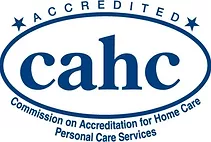It can be difficult to recover from a hospital stay, especially for seniors who may already be dealing with chronic health concerns, cognitive decline, or mobility issues. But taking an active role in their post-hospital care plan can have a big impact on their healing process and general well-being. Seniors who are actively involved in their own care are more likely to take charge of their health, follow medical recommendations, and have a positive view on their recovery.
Realizing the Value of Participation in Healing
Seniors’ active participation in their post-hospital care plan is essential for a number of reasons. Initially, it cultivates a feeling of empowerment and authority over their well-being. Seniors are more likely to follow medical advice when they are aware of their treatment plan and the stages required. This can help to avoid complications, lower the chance of rehospitalization, and speed up recovery. Involving seniors in their care plan can also help reduce common post-hospital feelings of helplessness, despair, or anxiety.
Teaching Seniors About Their Post-Hospital Care Plan
Education is one of the best strategies for getting seniors involved in their post-hospital care plan. With the help of home health, loved ones can assist seniors in understanding the rationale behind all the elements of their recovery plan, including suggested activities, food restrictions, and medication. Seniors are more likely to comply if, for instance, they know why a certain diet is helpful or why certain medications must be taken at specified times. Home health can assist in making this information easy to understand by using straightforward language and graphics. Videos, diagrams, and written instructions can all be very helpful.
Understanding the Role That Therapeutic Services Play
Seniors’ success with post-hospital care might depend heavily on therapeutic treatments like speech, occupational, and physical therapy. By assisting seniors in regaining strength, mobility, and independence, these programs hope to reduce seniors’ risk of falls and other issues. Some seniors, however, might be reluctant to engage in these therapies, frequently because of false beliefs about their importance, discomfort concerns, or just plain stubbornness.
Family members and caregivers should stress the long-term advantages of these services in order to address this. For example, describe how physical therapy might lower the chance of falls by increasing strength and balance. Also, occupational therapy can improve seniors’ independence by assisting them in adjusting to everyday activities in a safer manner. Seniors are more willing to actively participate in these therapies when they realize how they can improve their quality of life as a whole.
Stressing the Value of Follow-Up Appointments
A senior’s post-hospital care plan will typically include follow-up visits with medical professionals. The purpose of these visits is to keep an eye on the senior’s healing, change prescriptions as needed, and handle any new problems before they get worse. However, as seniors begin to feel better after discharge, they may not see these visits as necessary.
Loved ones should emphasize the need for follow-up appointments by talking with seniors about their long-term health in addition to focusing on the present, which might help seniors understand their significance. Also, family members should encourage seniors to speak up during the visits by sharing their thoughts and concerns. Being more engaged can help them see the value of the appointments.
It’s important for seniors to participate in their post-hospital care plan in order to heal quickly and effectively. Ultimately, seniors who are actively involved in their care have a higher chance of following their care plan, encountering fewer problems, and reducing readmissions.
If you or a senior loved one needs post-hospital care in Cranford, NJ or surrounding areas, please contact the caring staff at Adult Alternative Home Care today. (888) 664-1769
- Home Care Assistance Can Help Seniors Manage Self-Care Tasks - April 24, 2025
- The Superfood You Shouldn’t Miss - April 9, 2025
- First Home Care Visit? Here’s The Inside Scoop - April 9, 2025


